Diagnosed with AIDS, not on medication yet, and slowly gaining weight, why?
Hello. I feel that before answering you on this question you need to make sure that you are not really diagnosed? Because AIDS has a latency period. And is your test method and way correct?
First of all, there are some tests to be done after the infection. Which tests should you do when you want to know your status? In fact, it is very simple, do an antibody test can be, and this test so far, including the quality of the reagents, including the maturity of the test method, at present, we can objectively say, we generally understand that the accuracy, or technically satisfied rate can reach more than 99%, so there is no need to go too much to go through more tests, today to do here, tomorrow to do it there again, this is not necessary. So there is no need to go through too many tests, one here today and another there tomorrow.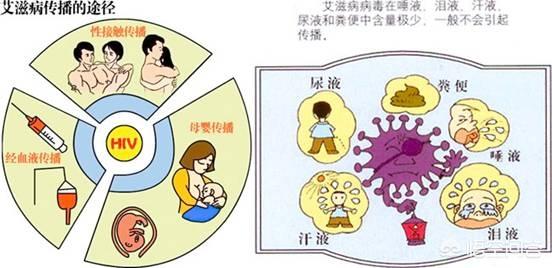
AIDS diagnostic modalities
The most common way to diagnose AIDS today is with an antibody test. When the body is infected with a virus, the immune system responds by producing antibodies. These antibodies, once produced, help the body to control pathogens, viruses and parasites. Therefore, we can diagnose whether or not we are infected with HIV based on this, and it can be said that most of the infections can be diagnosed by testing for antibodies.
There are two most commonly used HIV antibody tests.
(a) It is through the method of immunization: that is to say, through an instrument to automatically detect this kind of antibody, which has the advantages of simplicity, wide application and so on. It can be operated without the limitation of site and scale, and even some friends can operate it at home, which is what we often call the rapid diagnostic method. The characteristic of this technique, is that it is very intuitive, anyone can judge the correct result after a short period of training. This rapid diagnostic method can make a diagnosis in 20 minutes under normal circumstances. We can detect whether or not we are infected with AIDS by testing the antibodies in the blood serum, but this method does not have the possibility of being popularized in our country for the time being, for a number of reasons that I will not go into here.
(ii) Detection through urine, saliva, oral mucosa and other secretions: with this method of detection, sensitivity and specificity are very good.
(c) Detection of oral mucosal exudate. This is also a very quick and easy method and is non-invasive to the patient. This non-invasive test has the following advantages: on the one hand, the person being tested is not in pain, and on the other hand, for the operator, it also avoids some occupational exposure and some contamination in the operation. Detection of HIV antibodies, equivalent to half of the completion of this is a preliminary screening test, the specificity is slightly worse, because it also needs a confirmatory test to determine whether the antibody really exists; HIV antibodies, whether there are false positives or the phenomenon of cross immunity.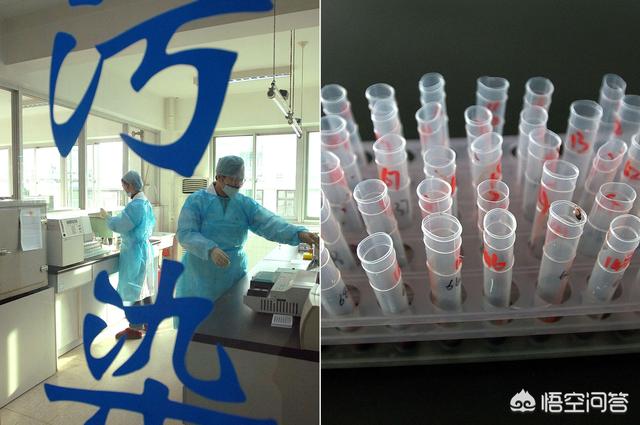
The most commonly used method in our country is serological antibody testing, which is more stable and has a higher degree of accuracy.
In addition, there is a window period for AIDS, that is, there is a process of antibody production after the pathogen has infected the human body, but with the continuous improvement of technology, we have been able to diagnose some patients infected during the window period earlier. In addition to HIV infection, there are other sexually transmitted diseases (STDs), and there are various methods of diagnosis. For example, in the diagnosis of syphilis, in addition to clinical diagnosis, it is also possible to take some secretions and dander directly from the skin. In addition, the diagnosis of syphilis, like the diagnosis of HIV infection, can also be done through the blood test for antibodies.
In conclusion, the diagnostic methods of sexually transmitted diseases are very rich, different diseases have different diagnostic methods, so we have to adopt different diagnostic methods according to different diseases, if it is the co-infection of more than two sexually transmitted diseases, we will adopt the method specific to each of them, or adopt the method with high sensitivity. Therefore, if you have a sexually transmitted disease, you must go to a specialized hospital for treatment, and the doctor will judge according to your clinical manifestations and symptoms, as well as some past experiences, and choose a good testing method for you. In this case, you can maximize the protection of your health and keep yourself healthy.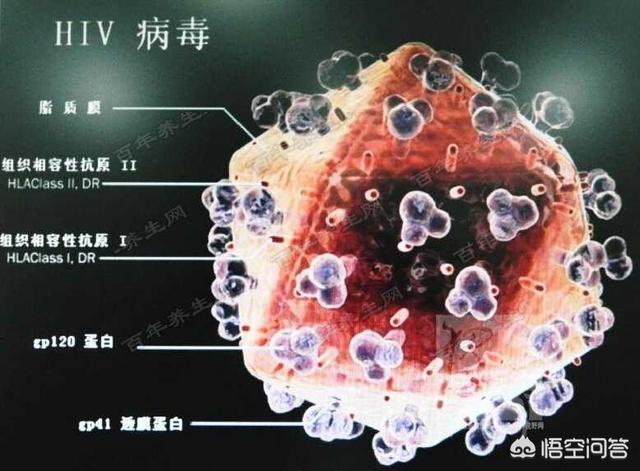
HIV antibody test, does it cost a lot of money and which level of hospital is the most accurate?
If you ask which level of hospital is the most accurate, this is not a matter of level, in our country can really test AIDS can assume responsibility for the results, are through the 31 provinces, cities and autonomous regions of the CDC, or the provincial level of the Department of Health approval of the qualified with the ability of such laboratories, so the test should be accurate, because it has the ability to do so.
But I would like to explain here that the competence of the laboratory includes the ability of the medical staff to protect themselves, to protect the patient, to protect their surroundings, and so on, and in particular the accuracy of the results that come out of the laboratory, and that involves what I talked about earlier, what kind of a mood you might be in if I give you a positive result, what kind of a mood you might have in your family, what kind of mood you might have in your members, what you might be perceived to be around, and that's how it would have been in the early days. It's lessened that discrimination now, but it's actually still going to be there. Give you a negative result you may not believe, but give you a positive result you may face a lot of pressure, so in this case, our requirements in this regard, the requirements of laboratory capacity may be higher, not that any hospital I open a new clinic or do anything can just do this kind of experiments, that's not allowed because from the technical specifications of the above requirements are higher.
Our country has long had a policy of four exemptions and one care for free testing and treatment in this regard. The State Council's regulations on the prevention and treatment of AIDS clearly stipulate that one of them is to provide free initial screening for AIDS, i.e., the initial blood screening test is free of charge. Now we have set up more than 100 laboratories in Beijing to provide free counseling and HIV testing to the public, including the CDC in our city and 18 districts and counties, have built such a screening laboratory, and there are also some hospitals have such a laboratory, a total of more than 50. Maybe there are still people who don't know about this, so I would like to take this opportunity to publicize the fact that any member of the public who voluntarily wants to be tested for HIV can go to one of these units, or, if I can remember, the CDCs in the 18 districts and counties that have these voluntary free counseling and testing laboratories. People can go there anytime, it's totally free and voluntary. At the same time, the Beijing Municipal Bureau of Health has also recognized HIV screening laboratories in the city, which can provide HIV testing services. In principle, secondary hospitals are now able to do this test, so you can rest assured.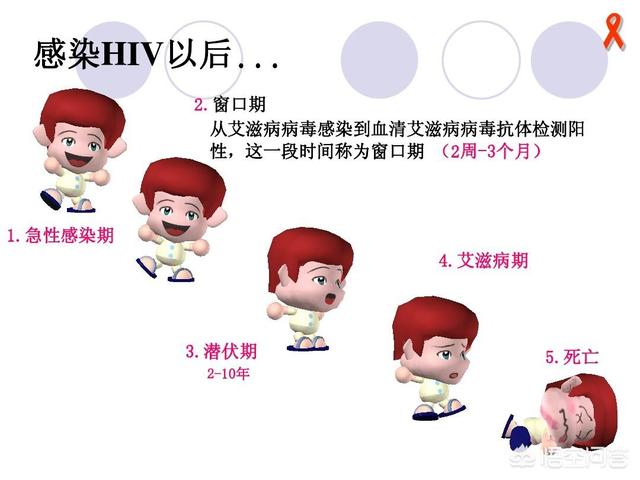
Are there any symptoms of HIV infection?
As a matter of fact, after being infected with HIV, if we strictly observe the situation, some people will have certain manifestations. Now, according to the medical data, after being infected with HIV, some people will have symptoms similar to those of a cold, such as a little bit of fatigue, for a period of time of one or two weeks, or up to three weeks, which will not be felt by the general public under natural circumstances. It is because the information we can now access is in the early stage of the discovery of AIDS in Western societies, it was found that many medical and health workers, including doctors and nurses, in the process of diagnosing and treating patients, cut their own hands, and after this kind of thing, after a period of time through the test, and at the same time in the event of the occurrence of this event requires them to record their own feelings every day, or the performance of the strict observation of the situation, some people feel that they are not aware of the symptoms. Under such strict observation, some of them felt that they had a very mild symptom similar to a cold for a period of time after the occurrence of this incident, which soon passed, and of course, this part of them proved afterwards that they were indeed infected, and in retrospect, we think that some of them would have such manifestations after infection, but in fact, quite a number of them could not feel it at all. What I mean is that we should not think that we are necessarily infected with HIV just because we have a cold-like feeling, because the symptoms of a cold can be caused by a number of factors, so there is no need to put a yoke on our heads.
Are patients required to be informed of their condition after diagnosis? Does the patient's information need to be filed with the relevant authorities?
Someone once asked me: Is there such a testing organization that keeps the confidentiality of patients even after detecting AIDS? If so, which one?
My answer is:You can go to the hospital or CDC to get tested, the medical staff is very nice and will consult before giving help and offer free testing with results in a week. If the test result is positive, our professional staff will only give treatment advice, will not restrict your personal freedom, and is absolutely protect your privacy. If the test result is positive, we will report it to the National Center for Disease Control and Prevention (NCDC), but we will not disclose any information about your privacy.
How is privacy guaranteed during HIV testing and treatment?
We have a strict system for AIDS, personal test results should be strictly confidential, it is directly related to ethics, so far, has not happened in the process of work, the privacy of people related to the events published; we have our basic operating procedures, that is, our responsibility, first, we are to further prevent, but at the same time to protect our test subjects, the treated person I think this is also the most basic professional ethics of the staff of the health organization, because we follow the principle that AIDS patients and infected people are not different from other people except in the aspect of "disease", and other aspects are not different from normal people.
Don't think of AIDS as an "incurable disease", but with the research and development of AIDS in recent years, many HIV-infected people in China, the longest living has been more than 20 years.
At present, there is no effective treatment for the cause of AIDS, but the general principles of treatment are anti-infection, anti-tumor, killing or inhibiting HIV virus, and strengthening the body's immune function.
4 treatments for AIDS
1. Anti-infection treatment
Medications for a variety of opportunistic infections and co-infections, including anti-viral infections, anti-bacterial infections, anti-fungals, and anti-protozoal antibiotics.
2. Antiviral treatment
As a broad-spectrum antiviral drug, virazole can be used as an option with some efficacy against HIV. Heterodimeric polyanion-23 continuous static drip for several months can kill HIV, α-interferon can also be selected as an auxiliary antiviral drug.
3. Anti-tumor therapy
Chemotherapy, radiotherapy and immunomodulation therapy regimens are selected according to different tumor types. Radiotherapy is better for symptomatic relief and can be applied in conjunction with chemotherapy.
4. Immunomodulation and immune reconstruction therapy
Immunomodulatory therapeutic drugs include immune enhancers, such as isopropyl inosine, which can promote the formation of gamma-interferon and interleukin-2 and increase T4 activity. There are also immunomodulatory drugs such as mushroom polysaccharide and interferon, which can be used as appropriate. In addition, bone marrow transplantation, thymus transplantation and lymphocyte injection and other immune reconstruction therapies have positive effects in the treatment of AIDS.
 The most important thing is to have a good mindset and laugh at life with a heart that never grows old! With the rapid development of national science and technology, I believe that drugs to treat AIDS will be developed soon. I hope you have a good heart and positive treatment. I also wish you a speedy recovery.
The most important thing is to have a good mindset and laugh at life with a heart that never grows old! With the rapid development of national science and technology, I believe that drugs to treat AIDS will be developed soon. I hope you have a good heart and positive treatment. I also wish you a speedy recovery.
It is generally recognized that the onset of the disease occurs when certain diagnostic criteria are met, such as a CD4 of less than 200, at which point it is referred to as AIDS. AIDS is actually a collective term for the many complications caused by the HⅠV virus that destroys the human immune system, also known as 'acquired immunodeficiency syndrome'. By acquired, it actually means infectious, i.e., not self-initiated.
Before AIDS develops, it is just called Hl V carrier and these two are not the same. Many people carry the virus and can live without any symptoms for many years, called the incubation period. During this time there is a struggle between the human immune system and the virus, and this process does not show up in a person's daily physical signs. Of course, most people's immune system will eventually lose the battle, depending on the individual's physical condition, the way the virus was contracted, the amount of virus, and the subtype of the virus. Anyway, during the incubation period, there is no characteristic difference between a person's physical signs and those of a normal person. So weight gain or loss over a period of time does not reflect anything at all. Of course, in the pre-morbid period of an infected person, a sudden and significant decrease in body weight for no apparent reason is often a precursor to the onset of the disease.
Most importantly, if infection has been identified, then CD4 should be monitored at all times and antiviral therapy should be started promptly. It is now generally accepted that detection is treatment, and the earlier treatment is given, the better the outcome and the more benefit.
Diagnosed with AIDS, not on medication yet, and slowly gaining weight, why?
Indeed, one obvious symptom of AIDS is body wasting and weight gain, which is puzzling and needs to be grasped in the context of the total course of AIDS. From initial HIV infection to end-stage is a relatively long and complex process, and at different stages of this process, there are a variety of HIV-related clinical manifestations.
AIDS is a chronic depleting infectious disease, and most patients suffer from malnutrition. Malnutrition, immunocompromise and infection are mutually reinforcing and form a vicious circle.
According to the clinical manifestations and symptoms and signs after infection, the whole process of HIV infection can be divided into the acute stage, asymptomatic stage and AIDS stage; clinically, it can be manifested as typical progression, rapid progression and long-term slow progression of three kinds of regression, and the emergence of different clinical manifestations.

The asymptomatic phase may be entered from the acute phase or directly into this phase without significant acute phase symptoms. The duration of this period is usually 6 to 8 years. Its duration is related to the number and type of infected viruses, the route of infection, individual differences in the immune status of the body, nutritional conditions and living habits. In the asymptomatic period, the immune system is impaired due to the continuous replication of HIV in the infected person's body.
Symptoms and signs associated with HIV infection: the main manifestations are fever, night sweats, diarrhea lasting more than 1 month; weight loss of more than 10%. Persistent generalized lymph node enlargement may also occur, with enlargement of lymph nodes in two or more areas other than the groin.
Symptoms progress slowly and are associated with resistance by the human immune mechanism.The process of HIV infection in human cells includes:
(1) Adsorption, Membrane Fusion and Penetration: After HIV-1 infects the human body, it selectively adsorbs onto the CD4 receptor of the target cell and enters the host cell with the help of the co-receptor;
(2) Reverse transcription, nucleation and integration: viral RNA in the cytoplasm forms complementary DNA under the action of reverse transcriptase, and synthesis of viral double-stranded linear DNA is completed in the cytoplasm under the action of DNA polymerase.
(3) Transcription and translation: When a provirus is activated and transcribes itself, the viral DNA is transcribed to form RNA, catalyzed by cellular RNA polymerase;
(4) Assembly, Maturation and Outgrowth: Gag and Gag-Pol precursor proteins are packaged with viral zygote genomic RNA on the inner surface of the cell membrane, culminating in the formation of infectious, mature viral particles.
I am Pharmacist Wang, insisting on spreading knowledge of diseases in simple and easy-to-understand words, and dedicating my own small contribution to a healthy China. If you think my answer is helpful to you, please leave a like! In addition, if you still have related questions, welcome to leave a message, we discuss together!
That's because you're just a carrier of the virus, not yet developed, as long as there is no disease appearance looks the same as a normal person, if the diet is normal, and do not participate in sports, weight gain slowly is very normal, but once the onset of the disease to become a patient, the weight of the loss of appetite and other reasons and slowly become thin, so it is not the diagnosis of AIDS will necessarily become thin, but also depends on you in that stage.
After being infected with HIV, you typically go through three periods, the acute phase, the asymptomatic phase, and the AIDS phase.
"Currently diagnosed with HIV, not on medication yet and slowly gaining weight, why?" It means that this situation is in the acute or asymptomatic stage, and has not entered the late stage of AIDS. After being infected with HIV, the virus in the asymptomatic stage has relatively little effect on the body, and can be no different from a normal person or have some mild symptoms.
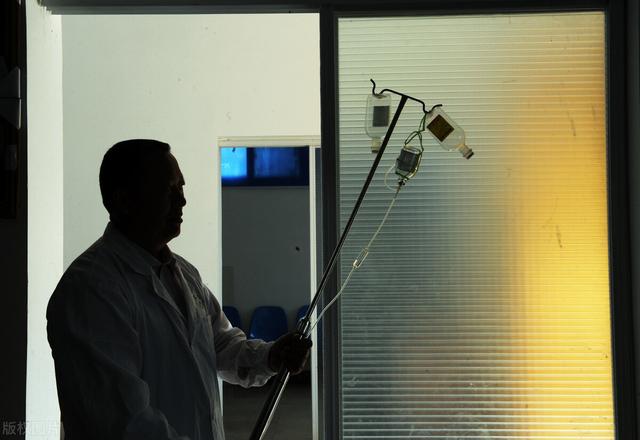
1. Is it true that you will always lose weight after being infected with HIV?
This is not always the case, there are differences in the effects of the virus on each person's body. There is a correlation with the individual's physical fitness, living conditions, dietary habits, psychological state, and so on. After HIV infection, the virus and the body's immunity has a struggle process, this process has an immune function rebuild through, in this process the physical condition is possible is normal or close to normal, even immune function is close to normal.
2. Regarding the weight loss that occurs with HIV infection.
Some of the common non-specific symptoms of AIDS, such as fever, diarrhea, weight loss, and opportunistic infections do not occur in everyone or in a different order. The relatively obvious one is the acute stage, and the other is entering the AIDS stage. During the AIDS period, the body's immune function is damaged, and various opportunistic infections or other complications occur, and there will be relatively obvious weight loss. At this time the entire body is in a process of decline.
3. Prompt antiviral treatment.

The current recommendation is to take antiretroviral medication after a clear diagnosis of HIV infection. The body may experience some discomfort during the initial period of medication, which is usually tolerated gradually. The effects of the medication are relatively minor compared to the effects of the virus itself, so do not refuse or delay taking the medication because of concerns about the effects of the medication on the body.
4. Regularize your life, regulate your mind, and take regular tests.
There is no way to change what is already clear by dwelling too much on it. In order to improve the quality of survival and prolong life, live a regular life, participate in social life as much as possible, eat a balanced diet, adjust your mindset, and try to avoid infections and treat infections aggressively.
First let's look at the staging of the course of HIV infection.
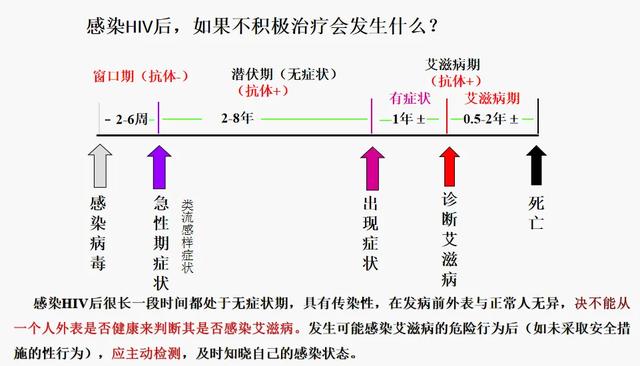
Your question is diagnosed with AIDS, but this expression is incorrect, perhaps you want to express is diagnosed with HIV infection. Because after infection with HIV, the virus will gradually destroy the body's immune function, so that the immune cells CD4 cells drop to less than 200 (normal people usually have more than 1,000), and symptoms appear, in order to say that the AIDS stage, until then can only be called infected.
You probably haven't been infected with HIV for too long, when the body's immune function hasn't been completely destroyed, there aren't too many symptoms, it's still in the incubation period, and your weight gain doesn't mean anything in particular.
With the passage of time, HIV in the body will gradually destroy the immune system, when it reaches a certain level, the body may gradually become thin, and the vast majority of patients will end up as thin as a bone. If you take your medication on time for antiretroviral treatment, your body's immune function gradually recovers, and it is the weight gain at that time that is a sign that your condition has improved!
In summary, pre-infection of HIV, weight gain has no special significance, standardized treatment, on-time medication, the immune function has recovered, that time weight gain is a sign of improvement in the condition!
Pathological phenomena can also cause weight gain, the problem of AIDS is that AIDS will attack the body's immune system, causing the body to lose immunity, and then a variety of diseases will be in the absence of immunity, the long drive into the human body, causing a variety of diseases and various infections, in the absence of immunity to restrain the situation will be to the extreme a state of development, usually some of the infections but the activation of the immune system, the immune system will produce Antibodies and some immune cells to eliminate the virus and bacteria.

In the absence of these immune functions, viruses and bacteria will be in the absence of control without natural enemies in the case of the original pathogenicity is not strong species will also continue to grow and develop the ultimate state of extreme, and the human body has lost the inner immunity at the same time, it is possible to external medication to treat, that is, although it can not repair the immune system, but can still kill a lot of viruses and bacteria to offenders, and play a foreign control and treatment. The effect is like a broken leg can not grow out, but can be used externally prosthetic crutches to support these.
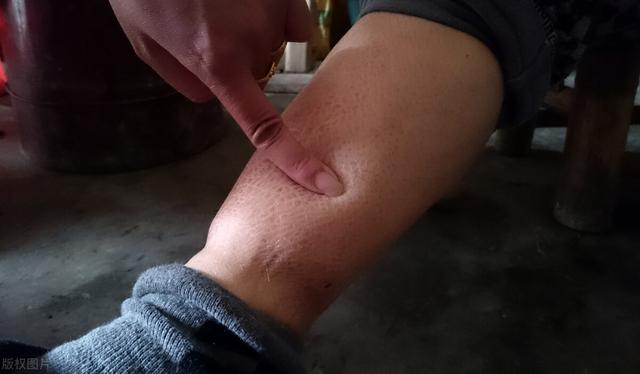
And these and the weight is nothing to do with . And the weight of the change does not explain the health or not, such as water-dampness poor transportation, drink a little bit of water on the edema soaked into the skin, then really drink water will be heavy, but this is pathological, so with the decline in resistance, this edema type of weight gain will occur frequently, here and there swelling will often happen, but this weight gain is not healthy, so we need to treat the symptoms of treatment and conditioning.
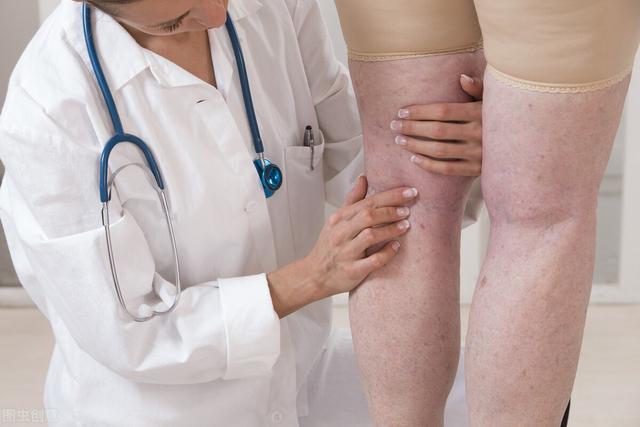
This happens when CD4 is high.
This question and answer are from the site users, does not represent the position of the site, such as infringement, please contact the administrator to delete.